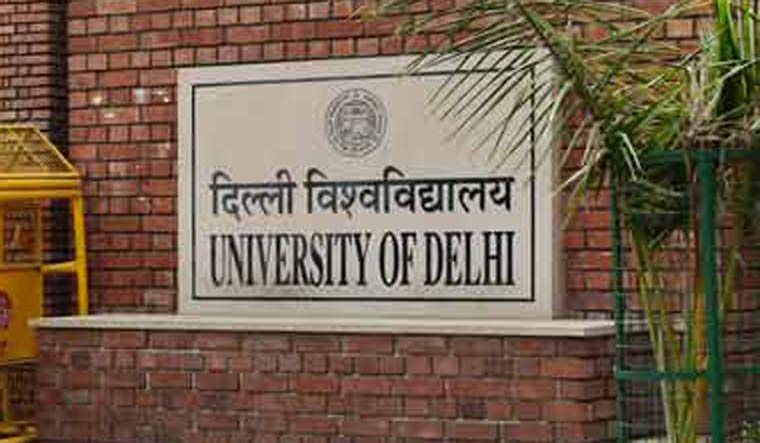
In a survey cum referendum conducted by the Delhi University Teachers’ Association, over 90% respondent students said that they were not ready for online examinations proposed by the university in its latest circular. The survey based its conclusions on the responses submitted by 51,482 students collected via teachers. The university in its circular had suggested that the students download the question paper sent by the university, write their answers on a plain paper and upload it within three hours. The formula saw vehement opposition from students groups who suggested that conducting exams would be an injustice to students from marginalised sections battling lack of devices, internet connectivity and other issues. Students from Physically Handicapped category said that the formula did not consider their issues of assistant writers and extra time usually given in pen and paper examinations.
The survey further said that nearly 50% students maintained that they were not able to access to reading material sent online by their teachers. Interestingly, 55% students responded that they did not have their reading material for classes held before announcement of pandemic.
On the logistical part, the survey said that 74% students were dependent on smartphones and conducting examinations on smartphones was not a feasible option for them. Similarly, 46.6% percent students avail 4G internet services whereas 10.9% students relied on archaic 2G services. The students of Jammu and Kashmir had maintained that the volatile conditions in the disturbed region were not conducive for conducting the examinations.
Addressing an online press conference, Rajib Ray, president of DUTA said that the decision to hold the examinations was made without any consultation with elected representatives or the members of Executive Council or Academic Council. He said, “The DUTA has been arguing that the OBE (open book examination) is a faulty method of examination as it discriminates against those without access to books, notes and online resources, encourages malpractice and penalises honest students. Further, it does not take care of the special needs of many students, especially the differently-abled ones.”
He added, “The DUTA demands that the university explore alternatives, which do not disfavour a large section of students or promote dishonesty. The proposals received from various quarters may be examined and a suitable decision taken to help students in these uncertain times, to alleviate their stress and anxiety.”
Abha Dev Habib, former member of the DU Executive Council, said that the university appears to be a laboratory for successive governments for implementing their reforms. We saw it during the Four Year Undergraduate Program (FYUP) or Choice Based Credit System (CBCS) courses. It is quite remarkable that the comparatively smaller universities like Aligarh Muslim University other Central Universities have not decided on the course of action for examinations. It is only the Delhi University that has come up with such a proposal. Even, the UGC committee head K C Kuhad which advised on the resumption of academic activities in the universities did not recommend it for his parent institution, Central University of Haryana.”
Meanwhile, various departments in the university have suggested alternative formulas for examinations. The sociology department of Delhi University has recommended awarding of numbers by giving 75% weightage to previous semester marks and 25% weightage for internal assessment marks of the final semester. The Combined Committee of Courses of the Department of History suggested, “For undergraduates, average of the marks of 1+2+3+4+5 semesters for the 75% marks of the total Marks/CGPA for semester 6. The remaining 25% are the internal evaluation marks of 6th semester. These modes of averaging marks would be adapted for final year SOL and NCWEB students. For Post Graduate courses, average of the marks of 1+2+3 semesters for the 75% marks of the total Marks/CGPA for semester 4. The remaining 25% are internal evaluation of 4th semester. These modes of averaging marks would be adapted for terminal semester SOL and NCWEB students. Additional time in July may be given to those UG and PG students who could not submit their assignments for internal assessment on time due to the difficulties under lockdown.”




